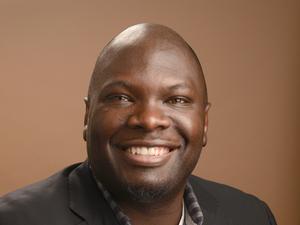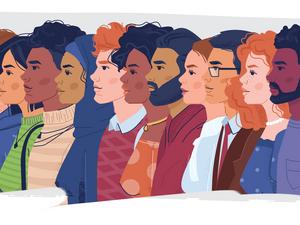After George Floyd was murdered by a Minneapolis police officer a year ago, top players in Minnesota's startup communitycalled for making the scene more racially inclusive. The calls were specific, so it's possible to check to see how entrepreneurs and investors stack up one year out.
The community is addressing a stark and now well-known gap in funding: About 1% of founders nationwide who received venture capital in the past five years were Black. White founders, meanwhile, made up over 77% of venture capital recipients, according to a study RateMyInvestor and DiversityVC.
"Everything they said, they've done."
Local startup supporter and nonprofit Beta.MN pledged that it would add a Black member to its board. In fact, it added two, tapping Clarence Bethea, founder of warranty startup Upsie, and Shonnah Hughes, founder of STEM nonprofit Teen Tech Titans. It also added Aneela Idnani Kumar, founder of HabitAware.
Additionally, Beta.MN pledged to diversify its bi-annual accelerator groups. Its most recent class of startups included a number of Black-founded firms like St. Paul-based sneaker-insurance company SoleSafe and Minneapolis-based Black Tech Talent.
"I've been really impressed with Beta and their commitment to their pledge. Everything they said on that pledge, they've done," Bethea said.
Is your network open or closed?
Bread and Butter Ventures, which launched last summer with a specific eye toward diversity, has also been able to meet its promises.
Sixty-three percent of its 42 portfolio companies have a founder that is a person of color, while 46% of its companies have a female founder, Partner Mary Grove said. It plans to publish its diversity metrics each year.
Bread and Butter evolved out of Brett Brohl's earlier venture firm The Syndicate Fund in 2020. Brohl was already known as a white investor who valued inclusion, but having a partner who was a woman and a person of color in Grove made Bread and Butter more approachable to diverse founders, Grove said.
Venture capitalists are ideally meritocratic in their investments, but the industry is network-driven, Grove said. The onus is on VCs to make sure their network is open-ended instead of closed off, and having someone like Grove who diversefounders can relate to makes that easier.
To that end, all of Bread and Butter Ventures' partners hold office hours each week that are open to anybody.
"If people feel supported and heard, they tend to reach out."
Minneapolis- and Boulder-based venture firm Matchstick Ventures said it would diversify its portfolio companies by adding a Black adviser to its advisory board, develop new relationships with organizations that can connect it with Black talent and push 30% of its companies to add a Black member to its board or C-suite.
The firm tapped Denver-based Aaron Clark as its adviser. Clark is founder and CEO of Justice Reskill, which helps people who have been involved in the criminal justice system get jobs in tech.
"We’re not doing it for marketing purposes, but if people feel supported and heard, they tend to reach out," said Ryan Broshar, a Minneapolis-based partner with Matchstick.
Fifty-six percent of the companies in Matchstick's second fund had at least one diverse founder, while 50% of those companies had a diverse employee base. However, Broshar said the firm continues to face hurdles in boosting diverse hiring and hasn't yet hit its goals around portfolio company hiring.
Venture capitalists just aren't built to refer talent, Broshar said, adding that it has found success in working with organizations like Bolster Networks Inc., which help growing startups connect with diverse talent.
An even bigger problem is maintaining the momentum of the movement a year out. Some of the organizations that made promises last year have dropped off the map, Bethea said without naming names.
Forge North, a nonprofit that promotes diversity in the startup scene, issued an open letter last year that received about 200 signatures from CEOs and other startup leaders. Signatories pledged to take actions to advance racial equity, including shifting spending to BIPOC companies, hiring diverse workforces and overhauling equity policies.
However, only 67 of those signatories filled out a follow-up survey sent earlier this year, Forge North's Director of Platform Meg Steuer said.
A four-part series of diversity trainings hosted by Team Dynamics that Forge North organized received about 45 participants, she added. The results of the follow-up survey will be published in the coming weeks.
"There's always more work to be done," Broshar said.








